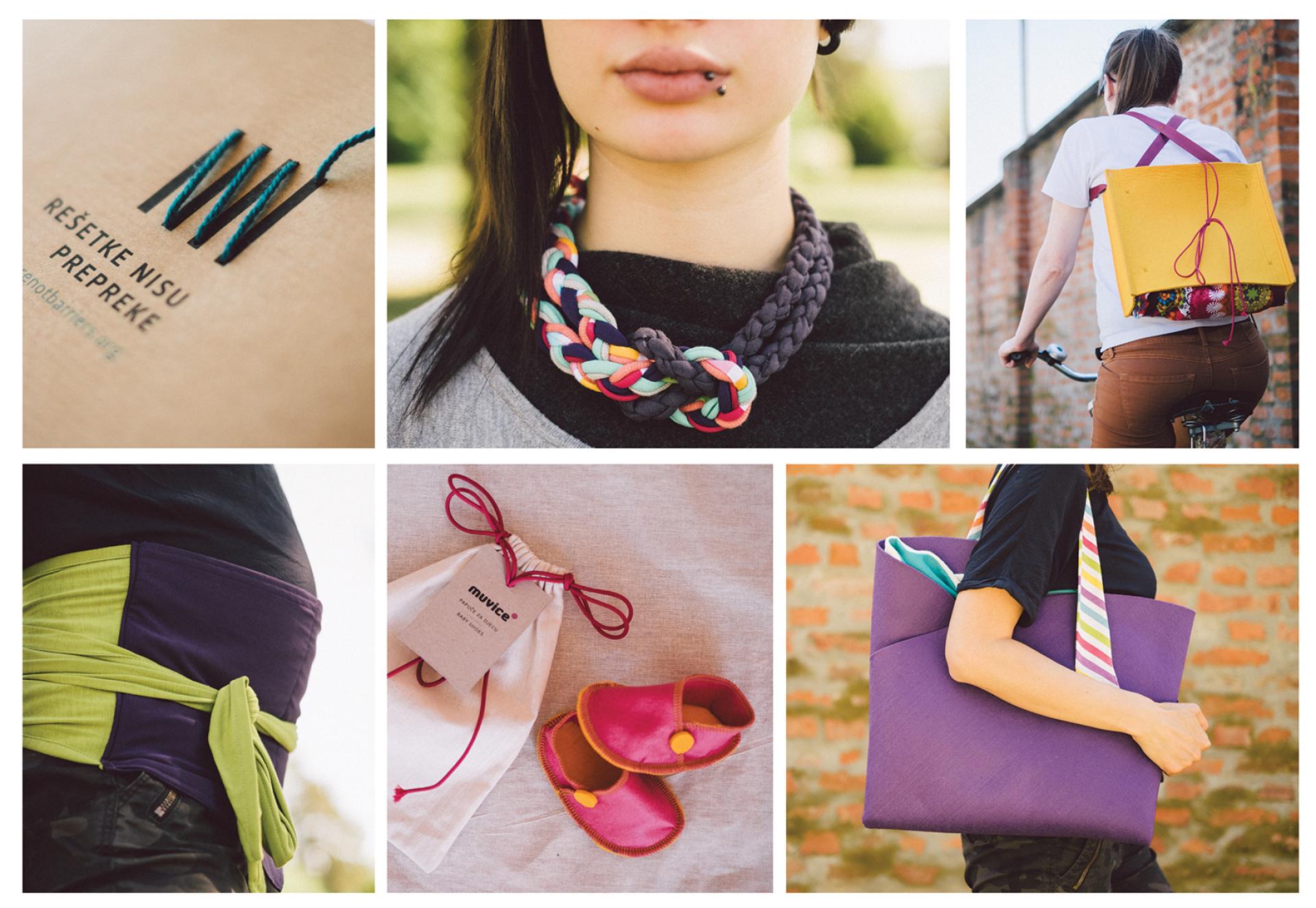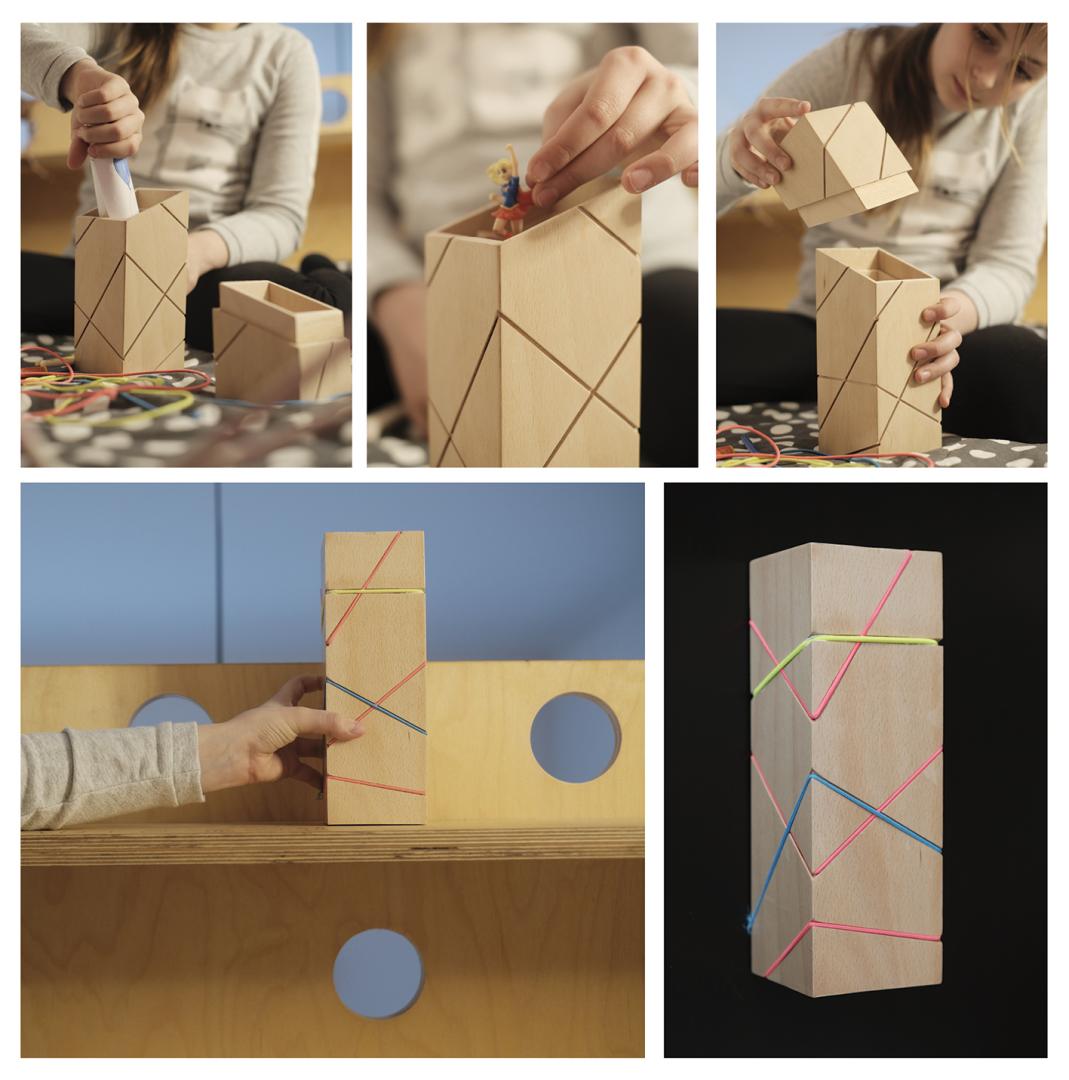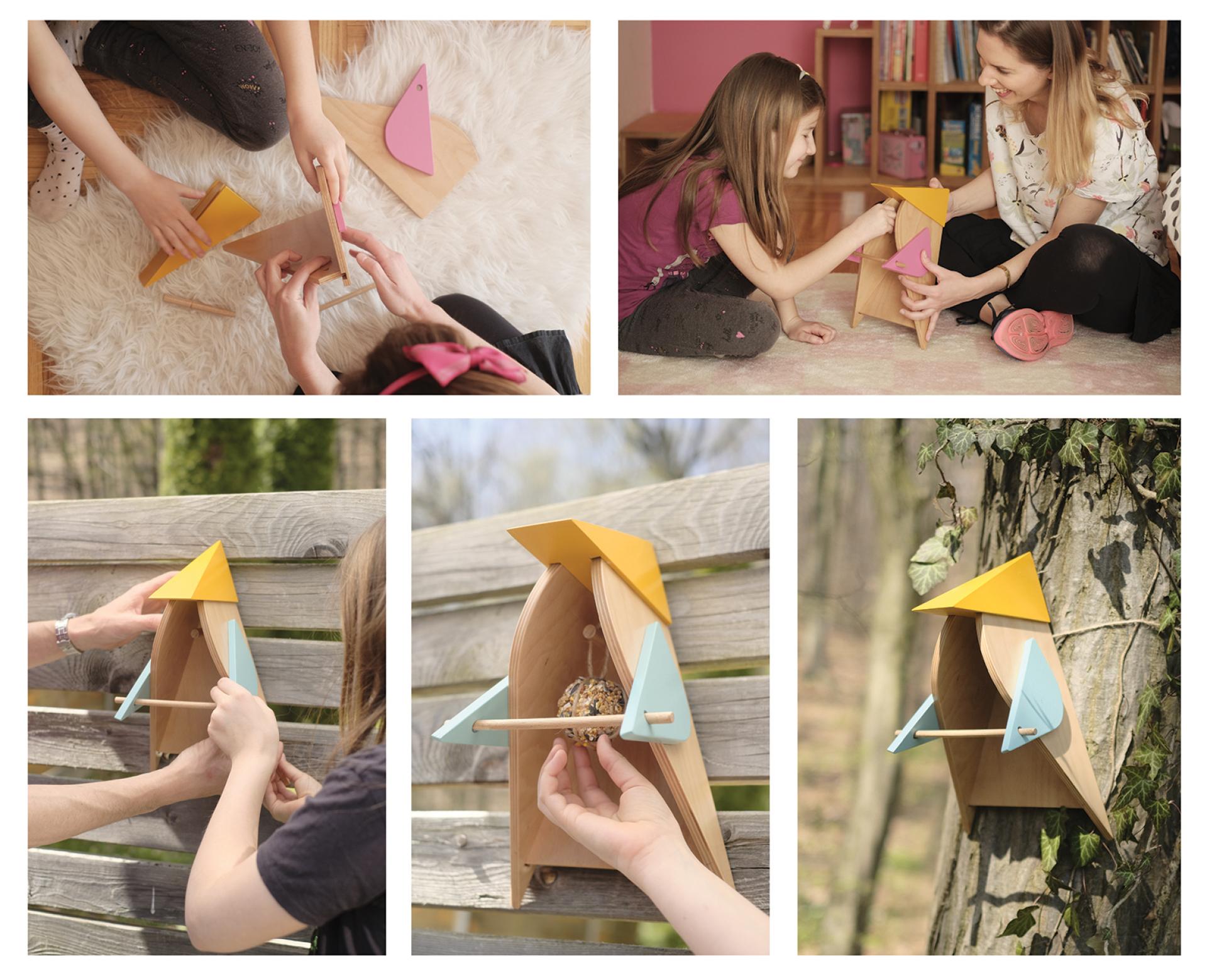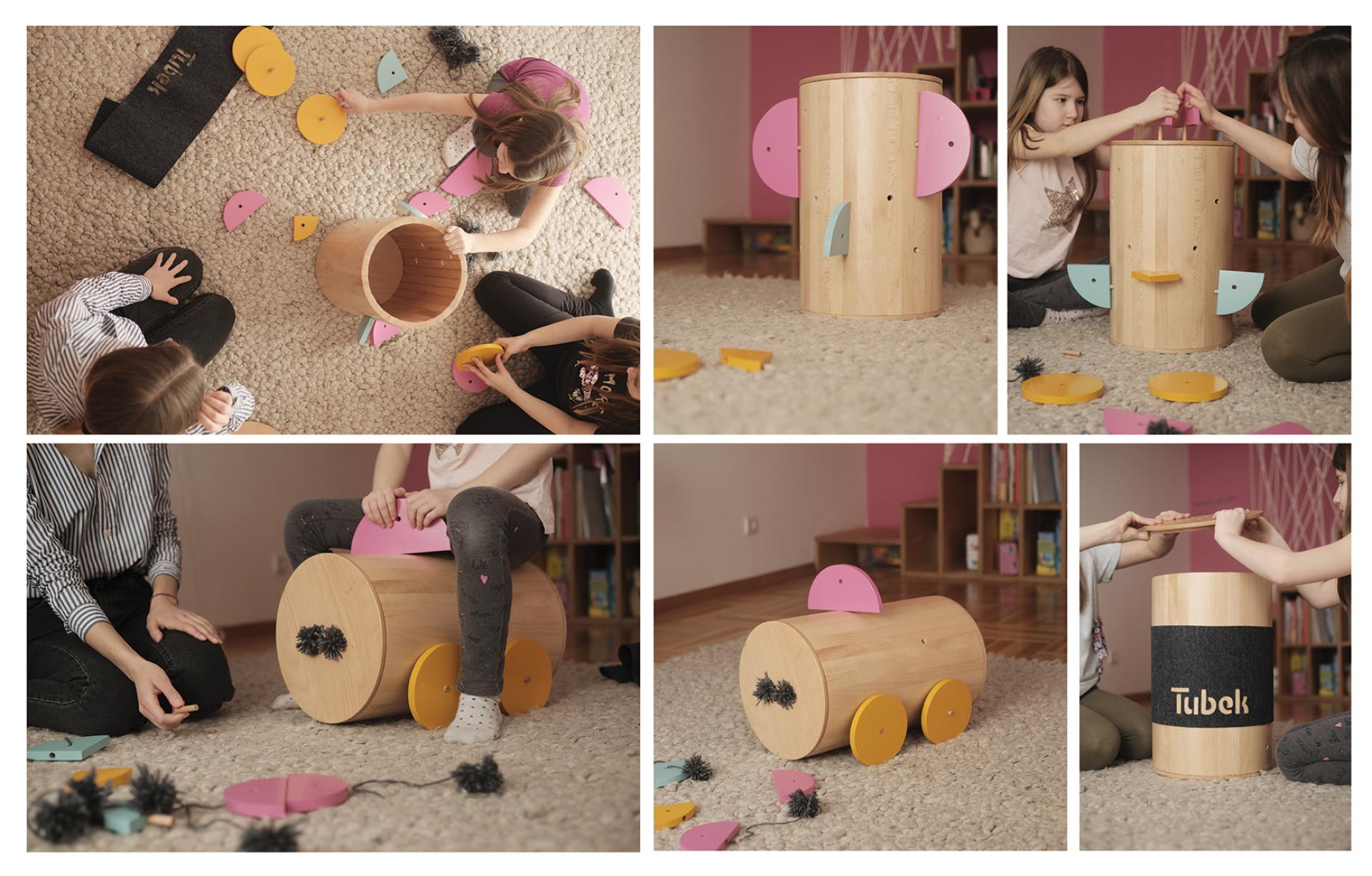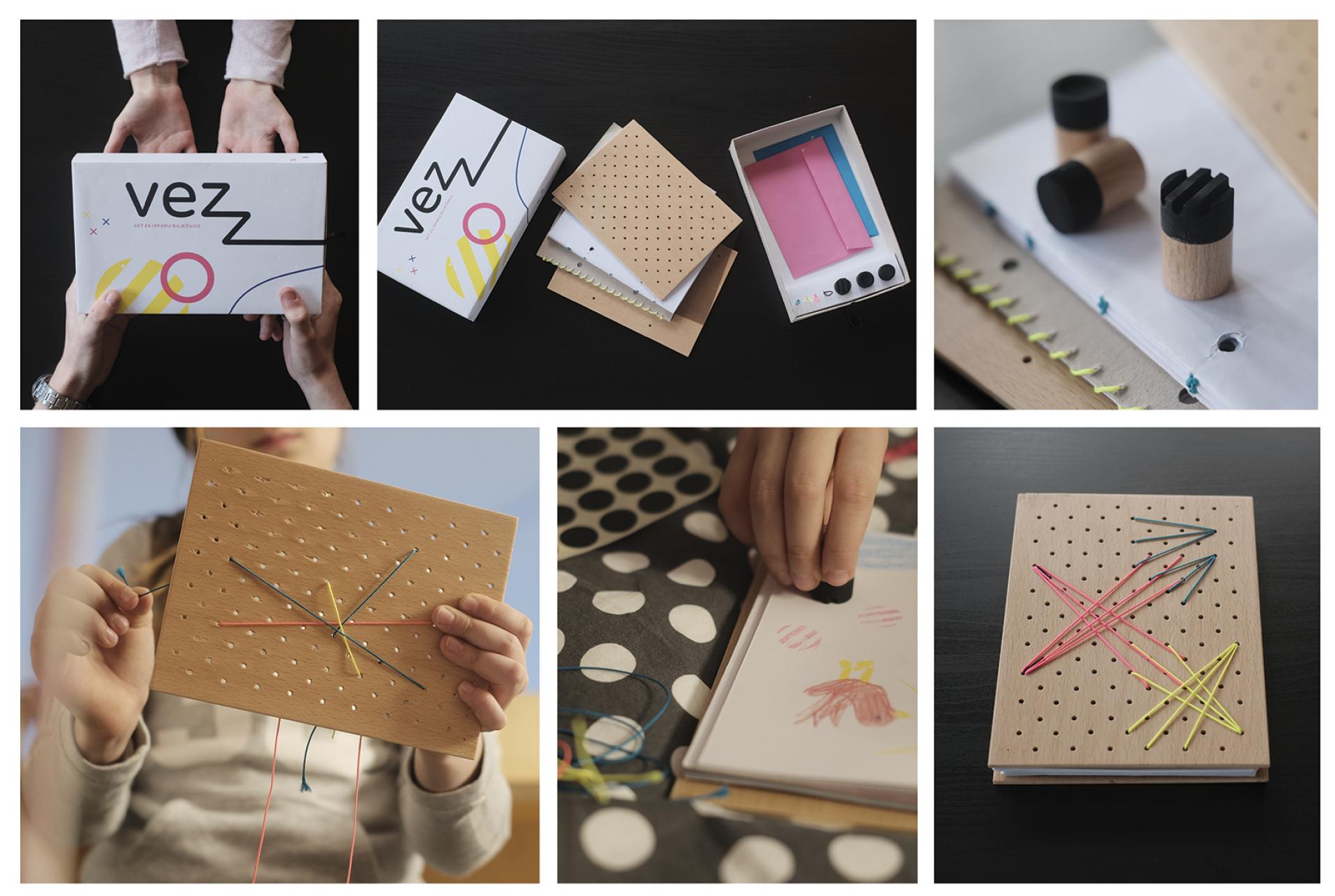Bars Are Not Barriers
Basic information
Project Title
Full project title
Category
Project Description
Project is a collaboration between Civil society organization Parents in Action, School of Design and Ministry of Justice in Lepoglava and Women’s Penitentiary in Požega, aimed to address the problems of parents-prisoners, i.e. children whose parents are in some Croatian prisons and penitentiaries. Through participatory design workshops with students and inmates, the project aimed to develop a socio-entrepreneurial model of financing the meetings or prisoners and their children.
Project Region
EU Programme or fund
Description of the project
Summary
Up to 18,000 children in Croatia (annually) have one incarcerated parent. These children are the most stigmatized members of Croatian society. Due to their difficult economic circumstances, the distance from their homes to prisons and the prevailing opinion that visiting incarcerated parents is not beneficial, these children very rarely visit their parents in prison. Legally, children can visit their children up to 52 times annually; however the average number of annual visits per child is 4.
Prisoners are one of the hardest-to-employ groups in society. It is more common for them to grow up without adequate caregivers and in poverty, have family who have been incarcerated, be abused or witness abuse, have behaviour or addiction problems and more. Roda NGO has identified two major problems:
- families cannot cover the travel expenses for children to visit their parents in prison, the consequences of which are a loss of a relationship with their parent and trauma;
- in the past, penal institutions had facilities (workshops) where prisoners could work; over time these have been abandoned. As a result prisoners loose a chance to earn a (limited) salary and develop their skills, and upon leaving prison are ill-prepared for the challenges of the labour market.
The first participatory workshop was conducted in 2015 in the Požega Prison, where 6 female prisoners and 12 design students created 8 textile products for parents and children that were sewn at the Penitentiary. Second workshop was held in 2018. in Lepoglava Prison, using their wood industry potential in creating products that include: toys, games, pedagogic material etc. A total of 9 prisoners, 15 students and 5 design mentors participated.
The project’s ultimate goal is to create a sustainable financing model to cover the travel expenses of children visiting their parents in prison, which will be financed through the profits made in selling products produced in prisons.
Key objectives for sustainability
The project invests in increasing the capacities regarding social and environmental sustainability:
1. NGO capacities are increased through the development of a social enterprise, marketing and branding;
2. The capacities of prison system employees are increased due to key trainings that will increase their knowledge and competencies;
3. Prisoners participating in this social innovation are not only workers in production – they are the co-creators and authors and through this participative process they develop various creative skills, a feeling of contribution, and of personal achievement.
4. The students of School of Design had the opportunity to develop innovative products for a certain consumer group which they have noted as a deficit in their practical university education, but also strengthening the awareness of this and other marginalized groups through participating in the project.
5. The social innovation is providing the prison system a source of income that contributes to building parental relationships between prisoners and their children. If the system can create profits through these types of activities, decision makers will be motivated to continue developing similar business models in other penitentiaries.
6. This innovation will allow children to visit their incarcerated parents more frequently by developing a participative social entrepreneurship activity in prisons. Profits from the sale of these products are put in a special fund that finances travel expenses for children to visit their incarcerated parents, creating stronger bonds.
7. Through training for employment, prisoners re-enter society, gain work experience, get used to responsibilities in completing their tasks and in the end self-recognition and affirmation as full members of society.
8. The project ensures that as many local materials and services as possible are used, and that the activities include the local community as much as possible (underdeveloped regions in Croatia)
Key objectives for aesthetics and quality
The project has a strong advocacy component, in terms of communication of contemporary social problems, such as the distance between parents and children in technology driven society, and a lack of interaction and other specific problems faced by those in the penal system – visits with children, growing up in prison and more. It complies to RODA's mission: to encourage change into a society that acts responsibly towards children, parents, future parents and families – through information, education, active lobbying and inclusion, as well as encouraging parents and other societal groups to question the status quo and be part of change.
The following were the requirements on design, process and the final products:
1. they must have all the necessary quality certificates, proving they are safe for children
2. they do not create new needs
3. they are not bought out of pity
4. they are recyclable
5. they build parent-child relationship and communication, bring them closer especially in specific situations such as separation
6. they do not deepen stereotypes
7. they must consider all forms of family and must not discriminate
8. they must be useful in different ways
9. they can be inherited
10. they must have affordable price
11. they must be made of local materials and using existing prison technologies
12. they are innovative and encourage interaction
13. they are clear in concept and communication and have simple aesthetics
14. they leave space for the prisoner's input and authorship
All the products created have a very important characteristic – they don't encourage consumption, and shouldn't be purchased out of pity for prisoners, but because people need them, because they are well-designed, and have an added value, giving people the opportunity to feel that they are helping someone with their purchase.
Key objectives for inclusion
Many studies have shown the need to include prisoners in gainful employment with the goal of facilitating their rehabilitation, resocialization and therapeutic potential from developing skills. It is also known that employment provides a fundamental exit from the incarceration cycle through prevention. Participating in the skill oriented process in prison can be helpful in successful labour and community integration upon release. Design, as a problem solving creative discipline is especially suitable for such practices. The project methodology was guided by participative methods that include stakeholders as creative co-authors in the process of making meaningful and sustainable products that encourage resiliency towards change, and act as agents towards responsible consumption.
Another form of inclusion is gained through advocacy. The idea that someone on the “outside” will be contributing to the implementation of this project – though purchase, volunteering or participating in another way, can drastically change the ways we deal with stereotypes about the children and family of prisoners. It is rare for consumers to know that the products they are buying have been produced in prisons, and they don't choose the product for that reason. In this project, the product and identity clearly communicate information about the partnership and goals to the audience. Some of the products communicate the urgent need to change the legislation for improving the living conditions for children born at the women penitentiary. Muvice baby slippers, one of the products made at Požega workshop, inspired by the English word 'to move' – because children born in prisons have a very limited space to move and aren't allowed to spend time in public, outside prison walls, to see their families until three years of age. They communicate a strong message about the urgency to change the legislation.
Results in relation to category
The long-term value of the project for the broader society and culture is related to introduction of social design practices and methodologies of participation, as well as the strong potential it has when implemented as agent of change within various social and economic systems. This pilot project of collaboration between NGO, Academic sector, Ministry of Justice and various penitentiaries served as a model for future initiatives, harnessing a potential of social design in encouraging sustainable and resilient communities. It is exemplary in terms of the creation of new social initiatives and entrepreneurships intended to increase human agency, creativity, equity, and our connection to natural resources. Educational potential of the project was multifold, on one side it encouraged members of specific community to express and perform through creativity and problem solving, but it also served as a lesson to students, future designers, who practiced letting go of their design expertise position, towards participative collaboration. That means providing framework to which others can react and help refine in collaborative fashion. Instead of polishing the idea to become 'perfect' for consumer market it serves as a facilitator of change, empowering the community to express and create, elevating the society from consumer labeled behavior and habits.
How Citizens benefit
In implementing this social business model we were led by the following values and principles:
- communicating the social potential of design to broad public through presentations and exhibitions
- broadening the perspective on design discipline, moving it beyond commercial context
- communicating participative nature of design in all phases, increasing the knowledge and competencies of all stakeholders included in the process
- transitioning towards creative, open-source and sustainable societies through cutting ties with consumer nature of design discipline
- environmental responsibility in creating products that answer to an actual need, and don't create a new needs
- inclusion of civil society is gained through advocacy. The idea that someone on the “outside” will be contributing to the implementation of this project – though purchase, volunteering or participating in another way, can drastically change the ways we deal with stereotypes about the children and family of prisoners
Innovative character
The innovation is in offering a solution on providing the prison system with a source of income in which the results can be visible rather quickly. If the system can create profits through these types of activities, decision makers will be motivated to continue developing similar social entrepreneurship models in other prisons and penitentiaries. The business ethics must be built into the innovation, and it will continue to be developed and formalized. Both RODA and School of Design support sustainability issues and will ensure that as many local materials, technologies and services as possible as used, and that the development of program activities include the local community as much as possible (penitentiaries included in the project are located in underdeveloped regions of Croatia).
The potential for scaling-up this innovation to other parts of the EU is considerable. In Europe there are currently social enterprise projects in prisons, but not many of them include
- Different partners, such as parents’ organizations, universities and designers
- The long-term goal of scaling up to all the prisons in the country
- Using design methodologies
- Have a strong advocacy component, where products communicate social problems, such as the distance between parents and children, lack of communication and specific problems faced by those in the penal system – visits with children, growing up in prison and more.
- That count on wide public and consumer support
- Has the strong support of key stakeholders in the Ministry of Justice
- Has the strong support of key stakeholders at the School of Design, in order to make this project a part of the curriculum and annual activities.
- The School of Design participates in international projects and exchanges, and the students who participated in the workshops with prisoners are our ambassadors. Their professional activities will help disseminate project information to a larger design audience.

